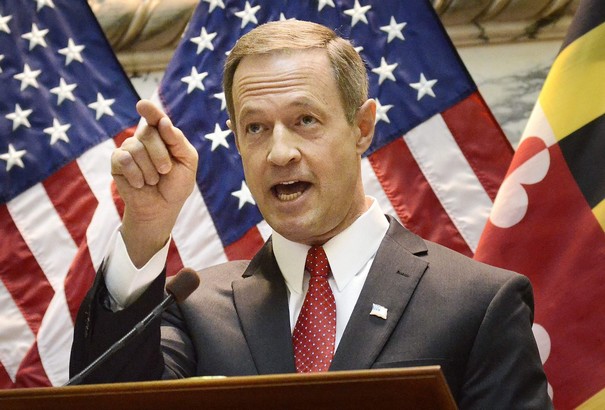Throughout the Iowa campaign, Martin O’Malley remained a relatively unknown figure resulting in his dismal performance.

The former governor of Maryland, Martin O’Malley has announced on Monday night that he is suspending his presidential campaign. This came as a result of his dismal performance in the Iowa caucuses. The announcement put a lid on his presidential ambitions once and for all.
Martin O’Malley had begun laying the foundations for his presidential bid when he was reelected as the governor in 2010. The vote count until now suggests that he is far behind Hillary Clinton and Bernie Sanders.
O’Malley has earned the support of less than 1 percent of the voters in Iowa. As he announced his decision to the reporters, he said that he wanted to thank everyone who supported him and lent him an ear.
Martin O’Malley tried to portray himself as a ‘new generation leader’. Unfortunately, his efforts were in vain. He formally announced his bid in May, but never succeeded in gaining a foothold.
Despite being a generally well-liked person in Iowa, Martin O’Malley could not convince voters that they should side with him rather than Hillary Clinton or Bernie Sanders. While Clinton is backed by the Democratic Party establishment, Sanders has very successfully charmed the left-wing of his party.
It is, however, a little bit surprising to see Martin O’Malley performing so dismally given his many accomplishments when he was governor of the state. However, he also suffered a few setbacks before he announced his candidacy.
Martin O’Malley’s preferred candidate for succession to the governorship of Maryland, Anthony G. Brown suffered a humiliating defeat in the 2014 race. Some even thought that it was a referendum on Martin O’Malley’s tenure that saw some policy victories for the liberals, but also introduced a series of tax increases.
The loss of Maryland governorship made some Democrats seriously evaluate Martin O’Malley’s role as an alternative to Hillary Clinton. Only a month before Martin O’Malley’s announced his presidential bid, there were riots in Baltimore after the death of a young black person at the hands of the police.
The situation started a new debate regarding the policing policies introduced by O’Malley when he was mayor. Critics openly said that his zero tolerance policy was the main reason for strained relations with the Afro-American community.
The riots also made it difficult for Martin O’Malley to portray Baltimore’s renaissance as one of his achievements. This was something he had cashed-in on several times before launching his campaign.
He also lost valuable time before announcing his candidacy – almost 4 months – after leaving the governor’s office. When he did announce his campaign, Bernie Sanders, a relatively weak candidate till then, had gained momentum. As Sanders began succeeding in drawing large crowds, several party activists began viewing him as an alternative to Hillary Clinton who was supposedly too tied to the big corporations.
During the closing weeks, Martin O’Malley was still a relatively unknown candidate. His fundraising was far behind the two other candidates he was facing.
Martin O’Malley’s future plans are still unclear. He has said that he is not interested in a cabinet position. By training, he is a lawyer. There are options open for him but it seems that the presidency is out of his grip forever.

Maybe Mr. O’Malley was more interested in making things work well than in political correctness.